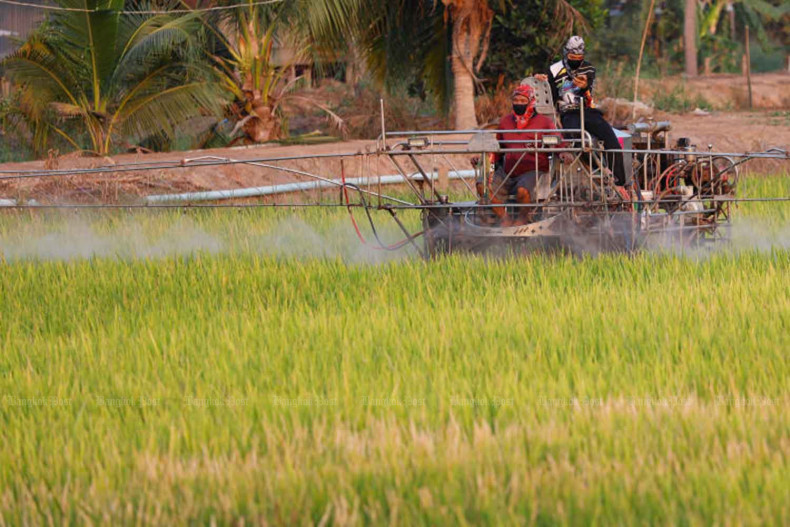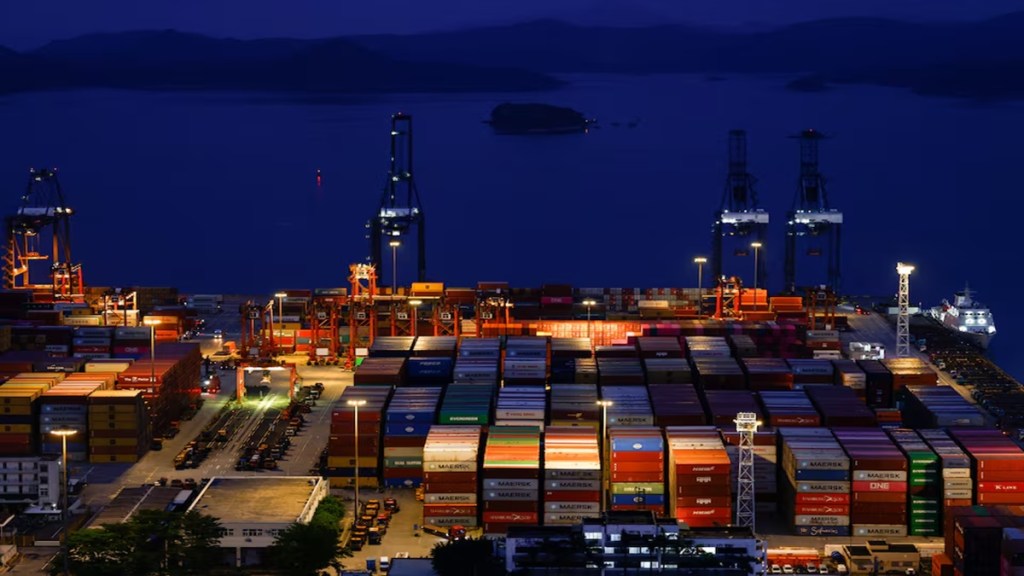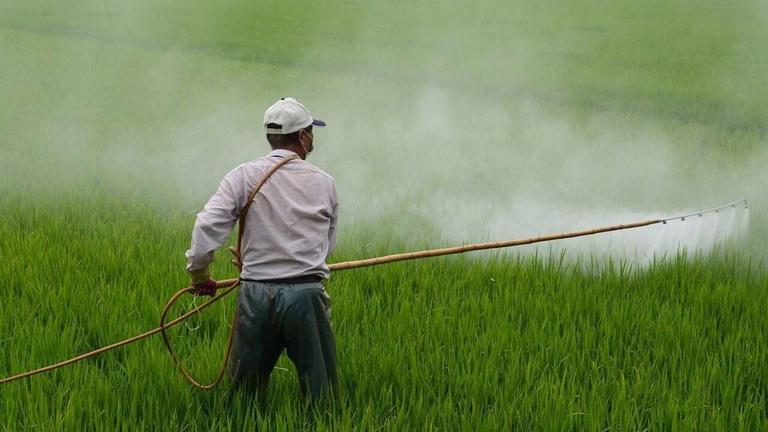Tags
Rice producers agree new blueprint

Pesticide is sprayed in a paddy field in Ayutthaya province in March. (Photo: Pattarapong Chatpattarasill)
A network of Thai rice stakeholders has agreed a common vision to foster national policies and related activities for upscaling environmentally-conscious rice farming practices to maintain, restore and improve biodiversity and the ecosystems across a variety of landscapes.
The latest synergy between government agencies, public, private and non- governmental partners to transform the national rice sector and agricultural production landscapes was demonstrated during the inception workshop of the Inclusive Sustainable Rice Landscapes in Thailand (ISRL) project recently.
Chitnucha Buddhaboon, Rice Department Deputy Director-General, gave a keynote speech during the ISRL inception workshop: “We’re aware of challenges facing rice farmers. That’s why traditional rice farming in Thailand should be systematically transformed. We value policy implementation, research and development and collaboration to protect the livelihoods and resilience of farmers and to reduce the footprint of rice farming on climate and environment.”
Mr Chitnucha said that his department recently introduced 10 new rice cultivars that are of better quality and suitable for growing in any area of the country, as well as resistant to droughts and floods while reducing fertiliser use and greenhouse gas (GHG) emissions.
“These rice varieties will boost farmer’s livelihood and Thailand’s competitiveness in the international market,” he said.
Thailand is a global leader in rice production and export. Increased production in past decades without sustainable landscape management has resulted in environmental degradation, GHG emissions, and declines in biodiversity and ecosystem services, he said.
Nana Kuenkel, Project Director and Cluster Coordinator, GIZ said: “The Inclusive Sustainable Rice Landscapes in Thailand (ISRL) project will enable all stakeholders to transform rice and agricultural production landscapes by reconciling competing social, economic and environmental interests.”
Ms Kuenkel said the ISRL project focuses on co-developing and demonstrating an integrated and multi-disciplinary landscape management approach to shift from conventional rice farming to inclusive, sustainable rice farming. It aims to build policies, capacity, and financing to apply and upscale adoption of sustainable rice farming practices while maintaining, restoring, and improving landscapes, ecosystems and biodiversity
More than 45,000 Thai farmers in Chiang Rai and Ubon Ratchathani joining the project will be trained to improve their management and production practices by the year 2027, she said.
Communities will learn how to produce their own natural composts and biocontrol products, thereby reducing farming costs and the potential risks of chemical fertilisers and pesticides. Crop diversification and agroforestry will also be carried out. An estimated one million rai of rice farmland and forest (160,00 hectares) are expected to adopt such farming methods, leading to e reduction of GHG emissions and toxic chemicals.
Additionally, the project will support improved management of high conservation value forests and restoration of forest lands in Chiang Rai and Ubon Ratchathani, she said.
https://www.bangkokpost.com/thailand/general/2787254/rice-producers-agree-new-blueprintPublished Date: May 5, 2024






